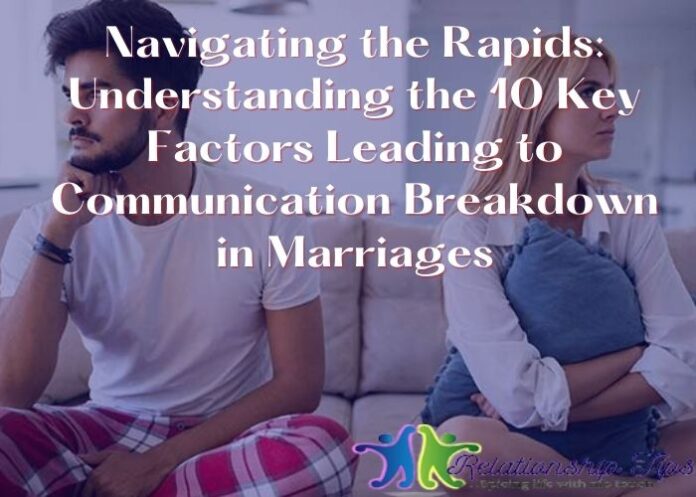Marriage, a beautiful bond that unites two souls, is a journey filled with both joys and challenges. Effective communication is the cornerstone of a successful marriage, allowing couples to share their feelings, thoughts, and aspirations.
However, despite the best intentions, many marriages encounter communication breakdowns that can strain the relationship. In this article, we will explore the ten common causes of communication breakdown in marriages and offer strategies to navigate these challenges.
In This Article
1. Lack of Active Listening
One of the most common culprits behind communication breakdown is the lack of active listening. When partners fail to genuinely listen to each other, misunderstandings arise, feelings get hurt, and intimacy dwindles. Encouraging attentive listening by maintaining eye contact and offering verbal cues can significantly improve communication.
2. Assumptions and Misinterpretations
Assuming we know what our partner means without seeking clarity can lead to misinterpretations. Unchecked assumptions can snowball into major conflicts. To avoid this, it’s essential to seek clarification when in doubt and to foster an environment where open questions are encouraged.
3. Unresolved Issues
Unresolved issues from the past can cast a shadow over current conversations. These issues may accumulate, making communication strained and unproductive. Addressing past conflicts through calm and constructive dialogue is vital to pave the way for effective communication in the present.
4. Negative Communication Patterns
Negative communication patterns such as criticism, defensiveness, contempt, and stonewalling, as identified by psychologist John Gottman, can erode the foundation of a marriage. Being aware of these patterns and making an effort to replace them with positive alternatives can transform communication dynamics.
5. Timing and Environment
The timing and environment in which communication takes place play a significant role. Discussing important matters during stressful moments or in public settings can lead to misunderstandings. Choosing appropriate moments and private spaces for important conversations can prevent unnecessary tension.
6. Technology Distractions
In the digital age, constant connectivity can also become a barrier. Smartphones and other gadgets can divert attention away from meaningful conversations. Establishing “tech-free” times and zones can create sacred spaces for couples to connect and communicate.
7. Emotional Baggage
Individual emotional baggage can hinder effective communication. Past traumas, insecurities, or personal issues can influence how partners express themselves and perceive each other. Sharing these concerns and working together to support each other’s emotional growth can foster better communication.
8. Differing Communication Styles
Everyone has a unique communication style. Some individuals are more expressive, while others are reserved. Recognizing and respecting these differences is crucial. Partners can learn to adapt and find a middle ground that accommodates both styles.
9. External Stressors
External stressors like work pressure, financial worries, and family issues can spill into marital communication. When partners are overwhelmed by external factors, their ability to communicate effectively may suffer. Identifying these stressors and finding ways to manage them together can alleviate their impact on the marriage.
10. Lack of Empathy
Empathy is the ability to understand and share the feelings of another. Without empathy, partners may fail to connect on a deeper level, leading to misunderstandings and emotional distance. Cultivating empathy through active engagement and trying to see things from each other’s perspective can enhance communication.
Conclusion
Communication breakdowns are a natural part of any marriage, but they don’t have to be detrimental. By recognizing these ten common causes and actively working to address them, couples can strengthen their communication skills and build a more resilient partnership. It’s crucial to approach these challenges with patience, understanding, and a willingness to learn and grow together. Remember, a healthy marriage is built on a foundation of open, honest, and empathetic communication.





